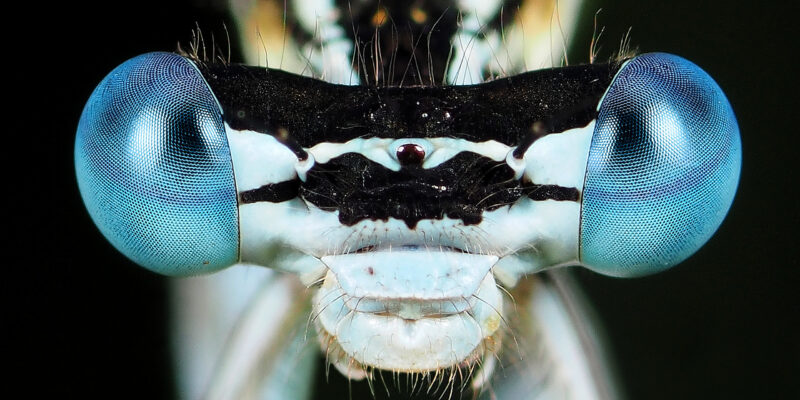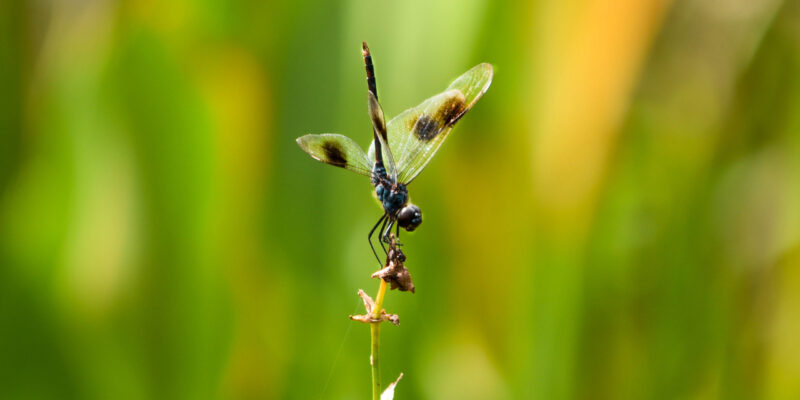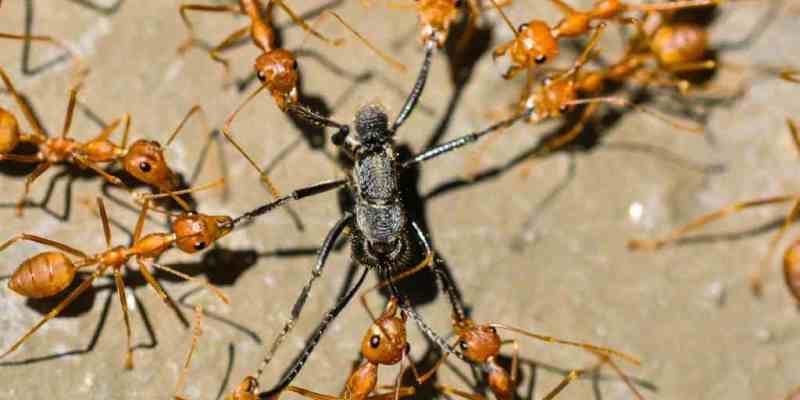Congratulations to the winners of the 2021-2023 Royal Entomological Society Journal Awards.
Physiological Entomology is a distinguished Royal Entomological Society journal with a unique focus on insects and arthropods, investigating their functioning and adaptations using experimental methods.
Papers from this journal address any area of insect physiology and provide valuable insights into how insects cope with their biotic and abiotic environments. Emphasizing physiological and experimental approaches, we publish research that fosters a deeper understanding of basic insect biology, the link between genotype and phenotype, and how insects adapt to environmental change.

Winner volume 47:
Lucas J Kirschman Immune function does not trade-off with reproductive effort in a semelparous wolf spider with parental care

This study, led by an early-career researcher, provides insights into the relationship between reproductive effort and immune function in semelparous organisms.
The judges awarded their article because
“it thoroughly investigated trade-offs between immune response and reproductive effort in the wolf spider Tigrosa georgicola and addressed a significant gap in the ecoimmunology of this species. It was selected because of its excellent writing style, convincing study design and carefully conducted methodology.”
Lucas is an assistant professor in the Department of Biology at Southeast Missouri State University. He received his MS from Clarion University of Pennsylvania and his PhD from Southern Illinois University Carbondale. He is an ecological immunologist and physiological ecologist, primarily interested in how immune responses and trade-off with other traits like reproductive effort, growth, and development. His work has examined how environmental stressors, resource subsidies, and development influence these trade-offs in wild animal populations and laboratory models. He has also explored the role of the gut microbiota in host development and disease susceptibility.
He said of his research, “My ultimate goal is to deepen understanding of the physiological mechanisms underlying ecological and evolutionary processes,”
This study investigated how reproduction trades off with immune function in Tigrosa georgicola, a semelparous wolf spider that provides parental care. Unlike many animals, these spiders did not show a trade-off between reproductive effort and immune function.

Examples of 2 mm fishing line (A) that I inject into arthropods to measure their encapsulation response.
Encapsulation is an immune response in which immune cells surround and wall-off parasites or other foreign objects. Individuals with stronger immune responses activate more cells and produce more melanin, which makes the surrounding tissue darker.
B-C are examples of increasingly strong encapsulation responses. This photo was published in Kirschman et al (2024) in Freshwater Science.
Lucas noted:
“We measured immune responses at three different life stage, not gravid, gravid, and carrying young. We found no differences in immune function between life stages. Furthermore, spiders carrying clutches of spiderlings maintained strong immune defenses, regardless of clutch size, likely ensuring their survival during the demanding period of caring for and dispersing their young. This implies the length and type of parental care are important life history traits that supersede fecundity, even in semelparous animals.”
Understanding the rules for how animals allocate energy to competing traits may give deeper insights into life history evolution

Winner volume 48:
Reyard Mutamiswa Thermal stress exposure of pupal oriental fruit fly has strong and trait-specific consequences in adult flies
Global climate change is increasing the intensity and duration of heat waves, and Mutamiswa and his colleagues investigated the lifelong consequences of heat stress during early developmental stages in the globally invasive fruit fly, Bactrocera dorsalis.

Judges said;
“the authors nicely demonstrate that mild heat stress during the pupal stage compromises longevity and thermal tolerance in the adult stage.
We selected this paper because of its unique approach to studying the consequences of thermal stress across developmental transitions, as well as its relevance to timely topics such as climate-induced range shifts and invasion biology.”
Reyard is currently a Senior Lecturer in Entomology in the Department of Zoology and Entomology at Rhodes University, South Africa. His research interests lie in a range of themes surrounding terrestrial insects and their environmental adaptations to changing climates, including eco-physiology, tri-trophic interactions, invasive species, and sustainable pest management. Dr Mutamiswa has made significant contributions to understanding how environmental stressors impact insect performance and what this means for pest management under shifting environments. Over the past years, he has worked on a range of projects/themes including, impacts of climate variability on the performance of cereal stemborers and their natural enemies, storage pests, vegetable pests, and the biosecurity threats of invasive insect pests. His research has been widely published in leading scientific journals. He is passionate about leveraging interdisciplinary approaches to address pressing pest management challenges.
Insects, by virtue of being ‘cold blooded’ always track ambient temperature, and as such will suffer most from heat stress due to ongoing climate change. This study, conducted in the research labs of Dr. Frank Chidawanyika (UFS, https://www.ufs.ac.za/) and Prof. Casper Nyamukondiwa (BIUST, https://www.biust.ac.bw/), documents the effects of juvenile thermal stress on adult Oriental fruit fly fitness, a critical invasive pest affecting global agriculture.
Reyard said of the winning article:
“Specifically, this study breaks new ground by investigating how thermal stress during the pupal stage affects performance in adult flies. Pupal heat stress significantly impaired longevity and heat tolerance in both fly sexes, while interestingly improving female fly cold tolerance. This suggests that Oriental fruit fly may have limited potential to shift ranges or thrive under heat stress.
The study provides valuable baseline data for the pest’s population responses to heat stress which may inform pest predictions and pest management under climate change.”


Highly commended Early Career Entomologist awards:





